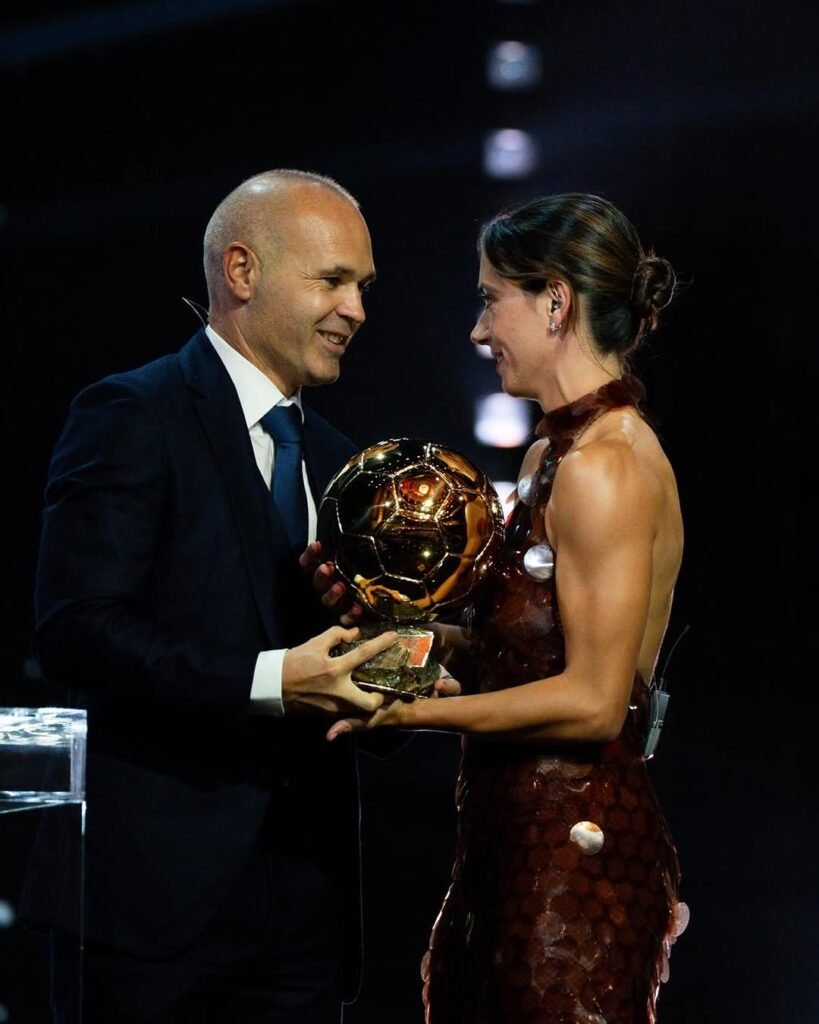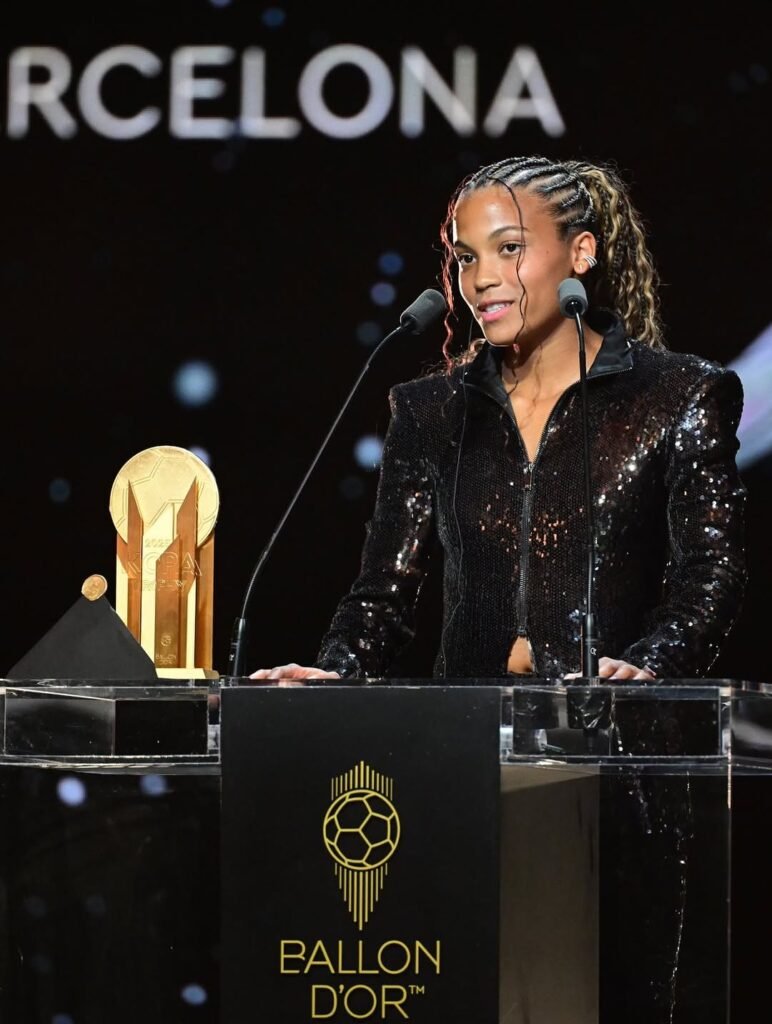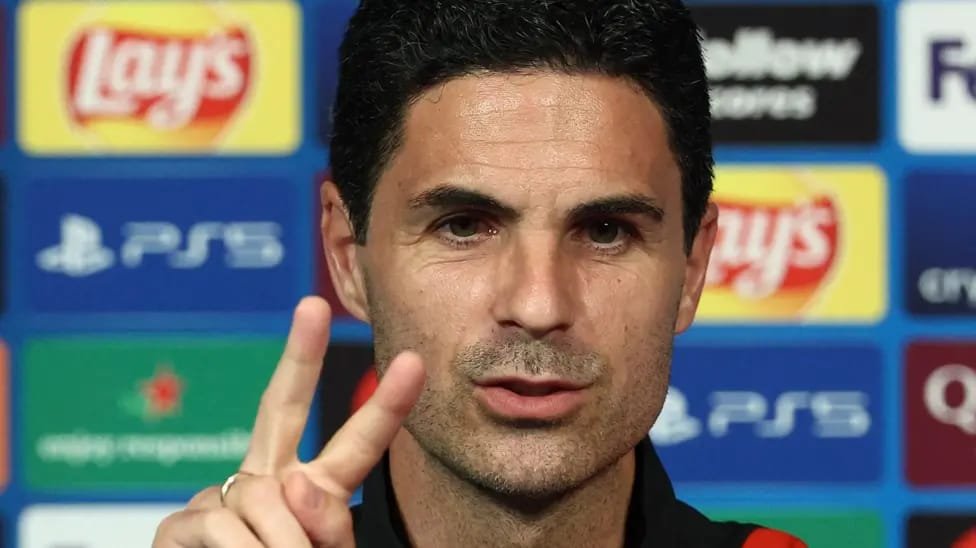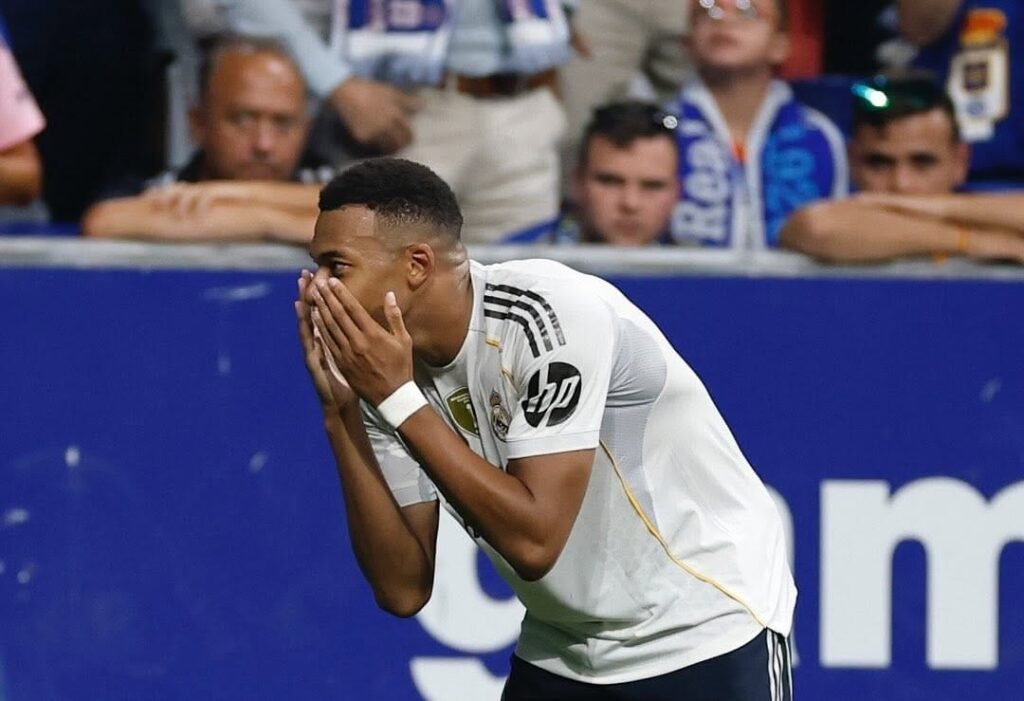
Spanish football is living through a golden era, and the 2025 Ballon d’Or awards night proved it beyond doubt. Aitana Bonmatí, the heartbeat of FC Barcelona Femení and the Spanish national team, secured her third consecutive Women’s Ballon d’Or — a feat that cements her as one of the greatest players of her generation. Meanwhile, her club teammate and fellow Spaniard, Vicky López, added to the celebration by winning the Kopa Trophy, an honor awarded to the best young player in world football.
The achievements of both Bonmatí and López mark a defining moment in women’s football. Not only do they highlight the dominance of Spain and FC Barcelona on the world stage, but they also underline the new standard of excellence being set by female athletes across the globe.
Aitana Bonmatí: The Queen of Midfield
For Aitana Bonmatí, the journey to a third Ballon d’Or has been nothing short of spectacular. After dazzling the world with her creativity, vision, and leadership in both La Liga and the UEFA Women’s Champions League, she once again stood head and shoulders above her peers in 2025.
Her consistency has been key. Whether dictating play in midfield, producing decisive assists, or scoring clutch goals in the biggest matches, Bonmatí embodies the perfect blend of elegance and effectiveness. Critics and fans alike often compare her influence to that of Andrés Iniesta and Xavi, legends of Barcelona’s golden era. Yet, Bonmatí has carved her own legacy, proving that she belongs in the pantheon of football greats.
What makes her third Ballon d’Or particularly special is the timing. Women’s football is experiencing exponential growth worldwide, with record-breaking attendances, soaring viewership, and landmark sponsorship deals. Bonmatí isn’t just winning awards — she’s becoming a face of this movement, inspiring the next generation of athletes, especially young girls who now see pathways to success that were once unimaginable.

Vicky López: The Future Has Arrived
If Bonmatí represents the present, Vicky López is the future. At just 18 years old, López lifted the 2025 Kopa Trophy, making history as the first Spanish woman to win the award. Known for her technical brilliance, fearlessness on the ball, and tactical intelligence, she has already established herself as a key player for FC Barcelona Femení and a rising star on the international stage.
Winning the Kopa Trophy so early in her career signals just how much potential López has. The award, previously dominated by male players such as Kylian Mbappé and Pedri, now features her name — a breakthrough moment that underscores how women’s football continues to break barriers.
López’s success is not only personal but symbolic. It shows that FC Barcelona’s famed La Masia academy is producing a new wave of world-class talent in the women’s game, much like it did in the men’s game over the past two decades. With role models like Bonmatí leading the way, López’s trajectory points toward even bigger achievements in the years to come.

Barcelona’s Continued Dominance
It’s no coincidence that both Bonmatí and López wear the blaugrana of FC Barcelona. The Catalan giants have built one of the most dominant women’s teams in football history. Multiple Champions League titles, domestic doubles, and a conveyor belt of talent have made Barça Femení the gold standard in the sport.
Their philosophy of possession-based football, technical excellence, and attacking flair has translated seamlessly from the men’s team to the women’s side. Players like Alexia Putellas, Caroline Graham Hansen, Patri Guijarro, and now Bonmatí and López have all contributed to this legacy. The fact that Barcelona players consistently feature in award ceremonies is proof of their institutional dominance.
Moreover, these individual accolades feed into the club’s global brand. As Barça continues to set records on the pitch, they are also expanding their influence off it — drawing fans from every corner of the globe and inspiring future generations to fall in love with the women’s game.
Spain at the Summit
The Ballon d’Or and Kopa Trophy wins also highlight Spain’s meteoric rise in women’s football. From winning the FIFA Women’s World Cup in 2023 to dominating youth tournaments, Spain has become a powerhouse. With a blend of experienced leaders like Bonmatí and rising stars like López, the Spanish national team is perfectly positioned to dominate international football for years to come.
Spain’s success is the result of years of investment in grassroots development, youth academies, and professional structures for women’s football. As more nations follow this model, the competitive balance in women’s football will only grow — but for now, Spain stands at the very top.
Cultural and Sporting Impact
Beyond the trophies, what Bonmatí and López have achieved resonates on a cultural level. They are redefining what it means to be a football superstar in the modern era. Their stories inspire not just athletes, but also fans who see in them the values of dedication, resilience, and ambition.
For brands, media, and sponsors, these awards open new doors for partnerships and representation. Players like Bonmatí and López are no longer just athletes — they are global icons, role models, and cultural leaders. This is particularly significant in a world where representation in sports media has historically been limited for women.
The Road Ahead
The 2025 Ballon d’Or ceremony may be remembered as a watershed moment for women’s football. Aitana Bonmatí’s third Ballon d’Or places her firmly among the immortals of the game, while Vicky López’s Kopa Trophy win marks the dawn of a new era. Together, they embody the perfect blend of experience and youth, dominance and promise.
For Barcelona, it’s another night of celebration, further proving their unmatched influence on world football. For Spain, it’s validation that their model of development is the blueprint for success. And for the global game, it’s a sign that women’s football has not only arrived but is here to stay at the very center of sporting culture.
Final Take
The triumphs of Bonmatí and López go beyond individual glory. They represent a movement, a shift, and a future where women’s football commands the respect, recognition, and celebration it deserves. Their victories at the 2025 Ballon d’Or are not just milestones — they are markers of a revolution that continues to unfold.
From the brilliance of Bonmatí to the rise of López, Spanish football is showing the world what happens when talent meets opportunity. And if this is just the beginning, the future of the women’s game looks unstoppable.




